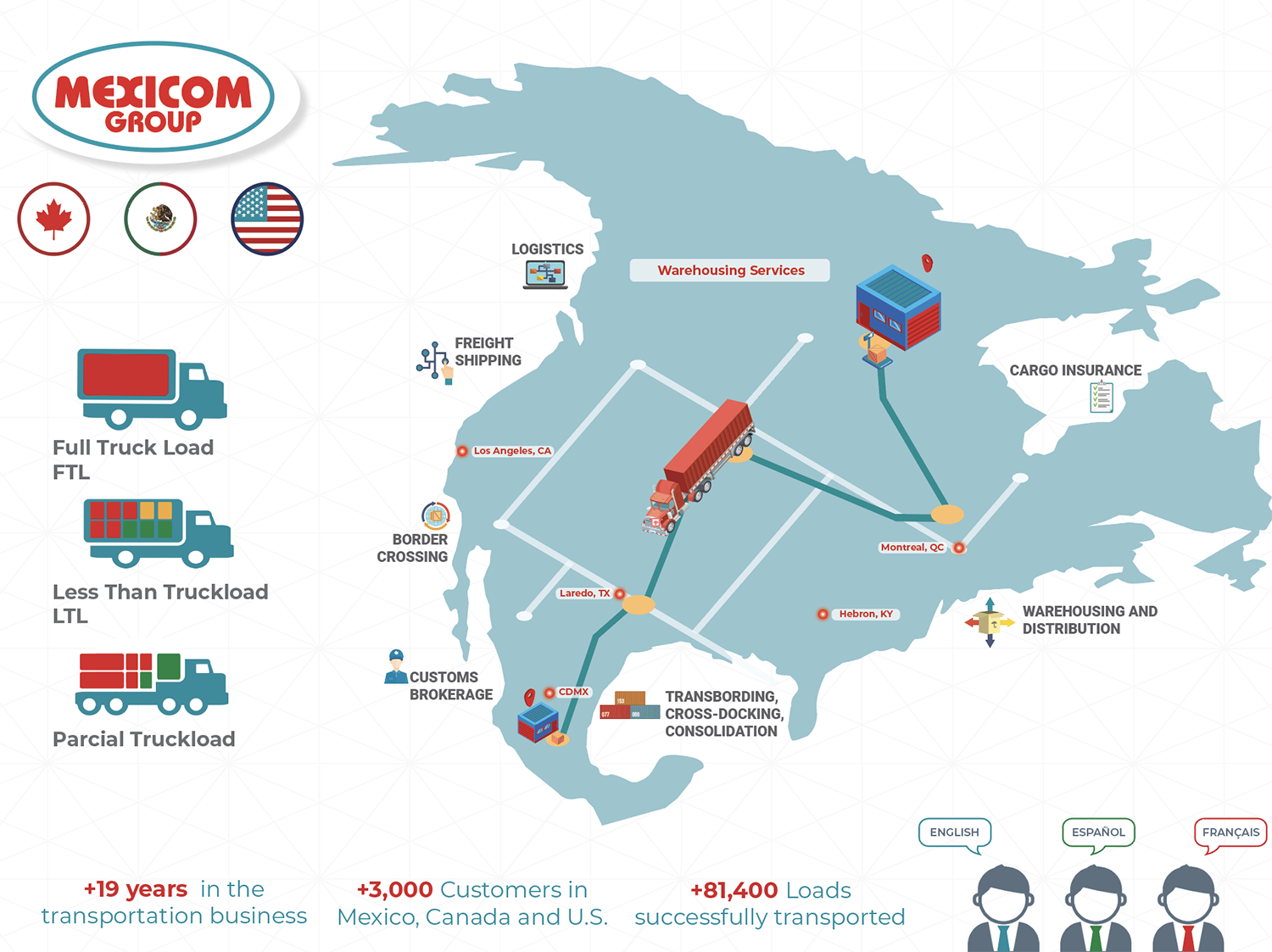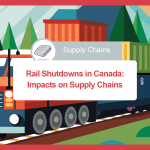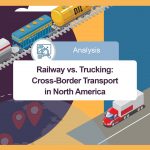UPDATE on Rail Shutdowns in Canada & Impact in Trucking
UPDATE:
Canada’s railways are working to resume full service after a labour board’s binding arbitration, which ordered rail employees back to work.
Canadian National Railway Co. is in the process of restoring operations, but it may take over a week to return to full service.
Canadian Pacific Kansas City Ltd. expects to resume normal operations shortly, despite the Teamsters union’s intention to appeal the ruling in court.
Both railway companies had previously reduced operations, resulting in a longer recovery time; one day of stoppage can take three to five days to recover. This disruption continues to impact trucking services as well.
Mexicom Logistics is dedicated to providing the best available alternatives to ensure transportation availability and to maintain current costs as much as possible during this period.
Rail Recovery Efforts
Following the labour board’s intervention, Canadian National Railway Co. and Canadian Pacific Kansas City Ltd. are working diligently to resume full service. Canadian National Railway Co. began the restoration of its operations immediately after workers returned on Friday morning. Despite these efforts, the company estimates that it may take upwards of a week to fully return to normal service levels. Canadian Pacific Kansas City Ltd., while also resuming operations, faces a complex recovery process as it waits for the Teamsters union’s appeal of the ruling in court.
The disruption caused by the strike was compounded by the fact that both railway companies had already scaled back their operations prior to the work stoppage. This included parking trains, removing goods from trains, and halting shipments of various products. The consequence of such extensive pre-strike reductions is that recovery from even a brief stoppage requires significantly more time. According to a spokesperson from Canadian National Railway, “One day of stoppage is three to five days of recovery,” highlighting the extensive efforts needed to bring operations back to normal.
Impact on Supply Chains
The impact of the rail disruption on supply chains has been profound. With rail networks being a critical component of Canada’s logistics infrastructure, the strike led to a substantial backlog of goods. The halt in rail operations resulted in an estimated $500,000 worth of goods being stalled each day. This delay has not only affected manufacturers but has also led to increased costs and penalties due to missed delivery deadlines. Industries such as agriculture, forestry, and manufacturing have been among the hardest hit, as these sectors rely heavily on timely rail deliveries for their operations.
Ratings agency Moody’s projected that the rail stoppage could cost the Canadian economy up to $341 million per day, a significant figure equivalent to more than 4% of the country’s gross domestic product. The extensive disruption has caused a ripple effect through various sectors, impacting production schedules, supply chain management, and overall economic performance.
Impact on Trucking
The effects of the rail strike have also extended to the trucking industry, which has been significantly impacted by the rail service disruptions. With rail operations reduced and recovery still underway, trucking companies have faced increased demand to fill the gap left by the halted rail services. This surge in demand has led to higher transportation costs and logistical challenges for trucking firms.
Mexicom Logistics, a major player in the trucking industry, has been actively working to mitigate these challenges. The company is focused on identifying and providing the best available alternatives to ensure continued transportation availability. Mexicom Logistics is also striving to maintain current costs as much as possible despite the increased pressure on the trucking sector. This proactive approach is aimed at minimizing the impact on their clients and ensuring that transportation services remain reliable during this recovery period.
Sources
https://nationalpost.com/news/canada/canada-rail-workers-labour-board
https://www.theglobeandmail.com/business/article-canada-railway-workers-binding-arbitration/










